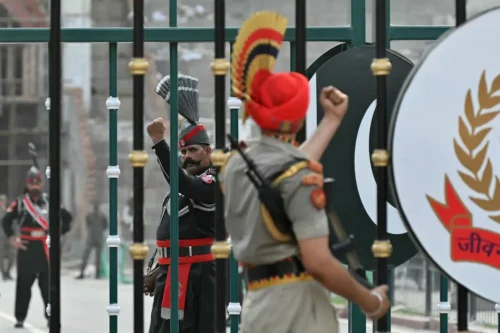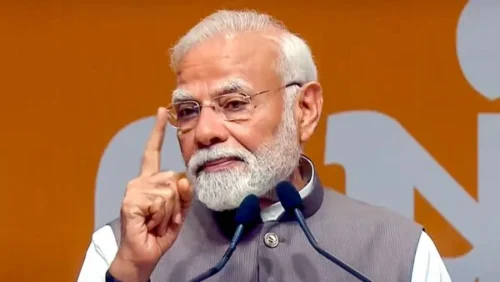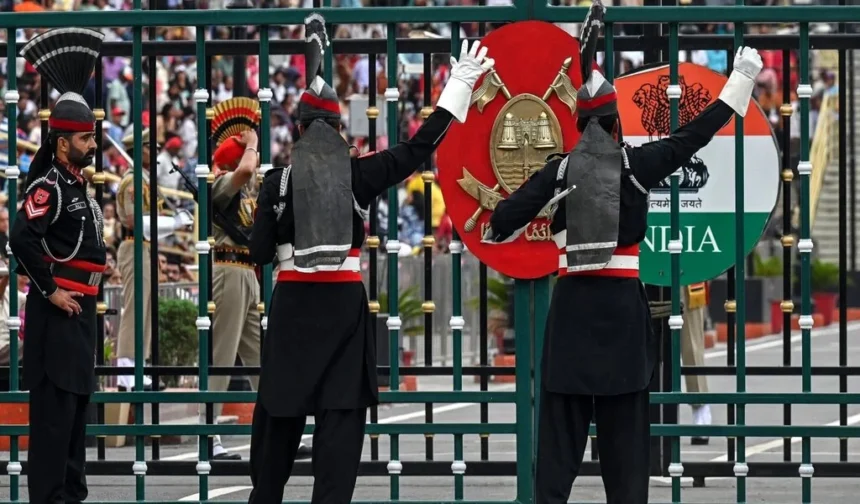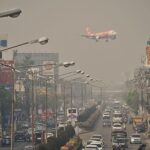The tenuous ceasefire that brought India and Pakistan back from the brink of war this month was celebrated by both sides as a victory. However, experts caution that the disruption to regional equilibrium has reignited fears about the dangers of armed conflict between two nuclear powers.
Following a militant assault in Indian-administered Kashmir that resulted in over 20 deaths, India accused Pakistan of being involved in the attack—a claim Pakistani officials denied.
India retaliated with strikes in Pakistan, which rapidly escalated into an exchange of attacks, including an Indian strike near Pakistan’s army headquarters. U.S. officials then intervened to help negotiate a ceasefire agreement.
India and Pakistan each possess approximately 170 nuclear weapons, which generally incentivize caution. However, the recent conflict has sparked doubts about the effectiveness of nuclear deterrence in preventing military escalation.
Some analysts argue that the situation highlights the unpredictable factors that could potentially lead to nuclear war.
“Do you observe close calls and perceive warnings, or do you observe close calls and see a system that is functioning precisely as intended?” said Jeffrey Lewis, a professor at the Institute of International Studies at Middlebury, referring to nuclear deterrence.

India Challenges Pakistan’s ‘Nuclear Blackmail’
Lisa Curtis, a senior fellow at the Center for a New American Security and former senior director for South and Central Asia at the U.S. National Security Council (2017–2021), said India appears willing to challenge what it calls Pakistan’s “nuclear blackmail”—the idea that India would avoid strong retaliation due to the risk of nuclear escalation.
“I believe India-Pakistan relations have entered a new and perilous era,” Curtis noted.
Despite the U.S.-brokered ceasefire appearing to hold, many experts anticipate renewed hostilities between the two nations.
Modi Declares a ‘New Normal’ in India’s Response
In his first public address following the four-day cross-border strikes, Indian Prime Minister Narendra Modi stated that the operation had established “a new benchmark in our fight against terrorism and has set a new parameter and new normal.”
“India will not tolerate any nuclear blackmail,” Modi declared, adding that an appropriate response would follow any future terrorist attacks.

This position marks a shift from India’s recent restraint. Since 1998, when both countries declared themselves nuclear powers, India has generally avoided escalating its responses to terrorism attributed to Pakistan.
While Pakistan has previously supported militant groups in Kashmir, it has distanced itself from them in response to Western pressure.
Lewis frequently uses ski headgear as a metaphor. “If you wear a ski helmet, you can ski more safely—or you can take bigger risks.”
He added, “Over the years, Pakistan seems to believe that possessing nuclear weapons allows it to take bigger risks in supporting attacks against India.” Lewis also noted that India, too, must observe limits in its responses.
For instance, after the 2008 Mumbai attacks that killed 166 and injured hundreds, India refrained from military retaliation.
Then-Prime Minister Manmohan Singh opted to isolate Pakistan diplomatically and financially instead, participating in a global task force that later criticized Pakistan for failing to prevent terror financing. Modi also showed restraint after a 2016 attack on an Indian army camp.
However, India’s strategy seemed to change in 2019, when it launched airstrikes in Pakistan following another Kashmir-based attack.
Crisis Communication and Nuclear Agreements in Place
Both nations have introduced measures to minimize nuclear escalation and facilitate communication. During the recent standoff, military officials used a hotline between the capitals to communicate directly during the crisis.
India adheres—at least officially—to a “no first use” nuclear policy, meaning it won’t initiate a nuclear strike. However, some Indian officials have introduced ambiguity to this stance. Pakistan does not follow a similar policy.
In 1988, both countries also signed the Non-Attack Agreement, pledging not to target each other’s nuclear facilities and to exchange information on their locations.
In recent years, both countries have experienced strong religious and nationalist transformations, especially since Modi’s 2014 election. India has quietly enhanced its nuclear arsenal and explored preemptive strike options to counter threats from Pakistan.
Michael Kugelman, a Washington-based analyst and Foreign Policy columnist, said political pressure within India surged following the April 22 attack in Kashmir, which killed over two dozen tourists, most of them Hindu.
“The Indian government, which is a Hindu-nationalist government, is particularly sensitive to any threat against the Hindu community,” Kugelman said, adding that this led to India’s particularly strong military response.
He noted that Pakistan’s retaliatory strikes were influenced by anger, as it was being held accountable for an attack it claims it did not commit. “Pakistan’s response was also motivated by the belief that India had used excessive force.”
The Debate Over Nuclear Deterrence Continues
The concept of nuclear deterrence—the idea that the threat of nuclear retaliation prevents conventional attacks—remains a matter of debate in this context.
“The nuclear deterrent has been functioning, but I believe it was tested more severely than ever in this latest crisis,” said Kugelman.
Lewis emphasized that the situation ultimately hinges on the “unanswerable question” of how to interpret a close call. He argued that deterrence worked, as the nations avoided a nuclear disaster. Yet, he warned that “the outcome could have been far more dire if circumstances had played out differently.”
The conflict illustrates the dangers of relying on nuclear deterrence in a region where political disputes can escalate rapidly, and where neither side fully understands the other’s red lines.
“Pakistan and India believe they know each other’s red lines. They probably have a pretty good idea,” said Lewis. “But humans are not perfect decision-makers. We misjudge, we misperceive… and sometimes, the military takes actions that leaders never intended.”
“This is not a game of chess,” he concluded. “The moves aren’t always discrete or visible, and no one can see all the pieces. That ambiguity is precisely what makes it so dangerous.”
Source: Washington Post















